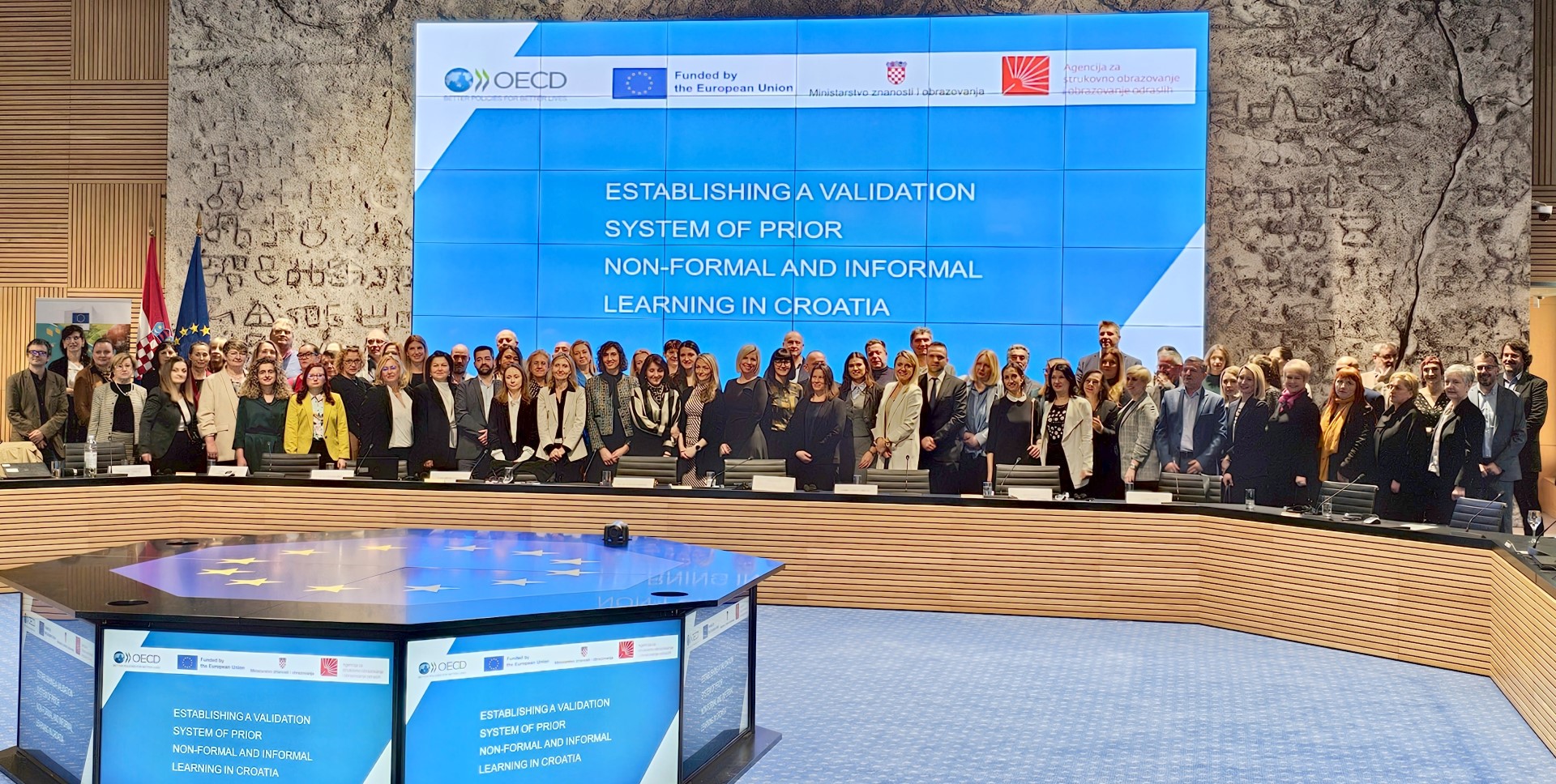
The Ministry of Science and Education and the Agency for Vocational Education and Adult Education, in collaboration with the Organization for Economic Co-operation and Development (OECD) and the European Commission, today presented the Croatian system for evaluating non-formal and informal learning, or prior learning. The presentation took place at the Congress Center of the National and University Library in Zagreb, gathering all key stakeholders from the national adult education system and numerous international experts.
The system for evaluating prior learning was developed following thorough research and collaboration spanning a year and a half, with development funded by the Technical Support Instrument (TSI) of the European Union. An advisory group composed of experts and representatives from the OECD, the European Commission, the Ministry of Science and Education, and the Agency for Vocational Education and Adult Education, analyzed prior learning evaluation systems in European countries and adapted best practices to the specific needs of adult education in Croatia.
The final conference provided an opportunity to present the new system for recognizing prior learning to the Croatian public and educational stakeholders, including details on the Regulations on the Application and Implementation of Prior Learning Evaluation, the Methodology for Developing Prior Learning Evaluation Programs for Acquiring Microqualifications, Partial Qualifications, and Full Qualifications, and the Guide for Adult Education Institutions; Evaluation of Non-formal and Informal Learning. In the introductory part of the program, participants were addressed by State Secretary Iva Ivanković, PhD from the Ministry of Science and Education, Mario Nava, Head of the Directorate-General for Structural Reform Support of the European Commission, and State Secretary Ivan Vidiš from the Ministry of Labor, Pension System, Family, and Social Policy.
Stefano Scarpetta, Director of the Employment, Labour, and Social Affairs Directorate of the OECD, presented the project activities, followed by a panel discussion on “The Role of Evaluation in Addressing Labor Market Needs and Promoting Training and Skills Development in the Republic of Croatia”. The panelists included Ivana Pilko Čunčić, Head of the Administration for Education and Training at the Ministry of Science and Education, Mario Vučić, Assistant Director of the Agency for Vocational Education and Adult Education, Grégoire Thiriar from CVDC Belgium, Anna Zaremba from DG REFORM of the European Commission, and Glenda Quintini, PhD from the OECD. The panel was moderated by Katharine Mullock from the OECD. Panelists agreed that the new system for evaluating prior learning will have a significant impact on the Croatian education system, especially in terms of increasing opportunities for lifelong learning and adapting to the constantly changing labor market.
Closing remarks were delivered by Andrea Čović Vidović from the European Commission Representation in Croatia and Mile Živčić, Director of the Agency for Vocational Education and Adult Education, who summarized the key points of the discussion and outlined further steps planned for the implementation of the new system for evaluating prior learning.
The conference provided an opportunity for questions, exchange of opinions, and experiences among participants. The new system for evaluating prior learning represents a fundamental step towards improving the educational framework in Croatia, aiming to recognize non-formal and informal learning and support individuals in their further professional development and training. The event highlighted the importance of international cooperation and knowledge exchange for the development of effective educational policies.


SHARE